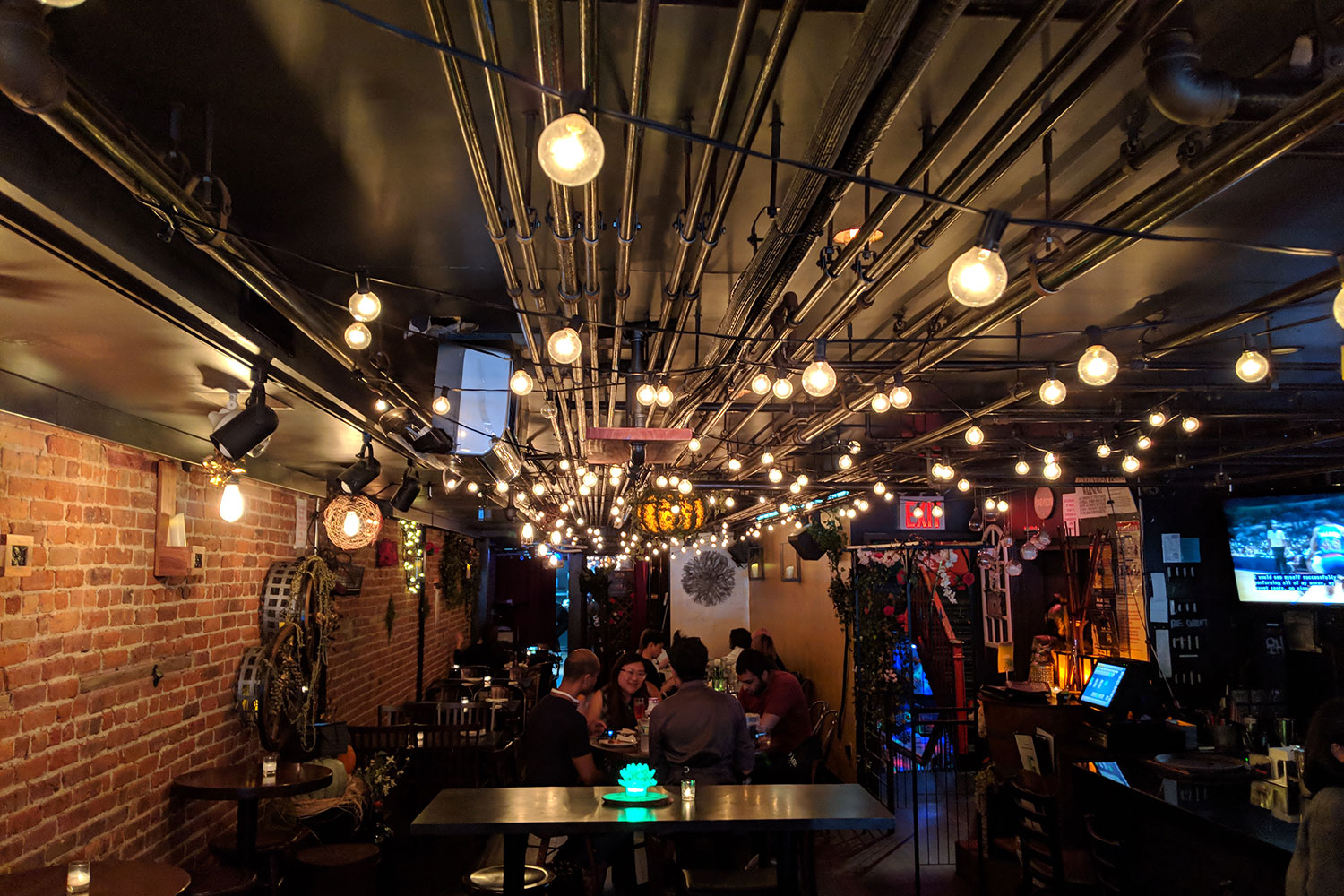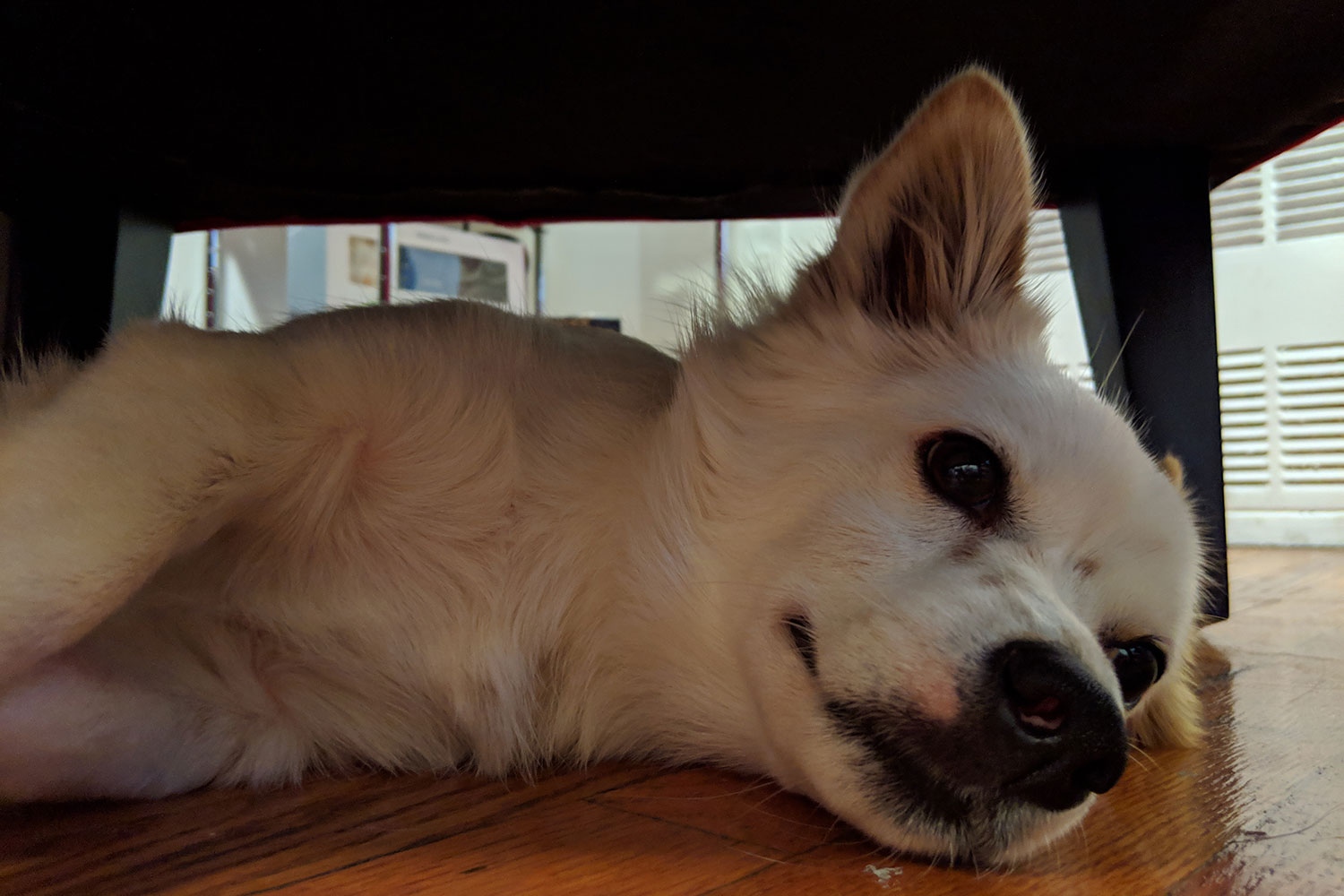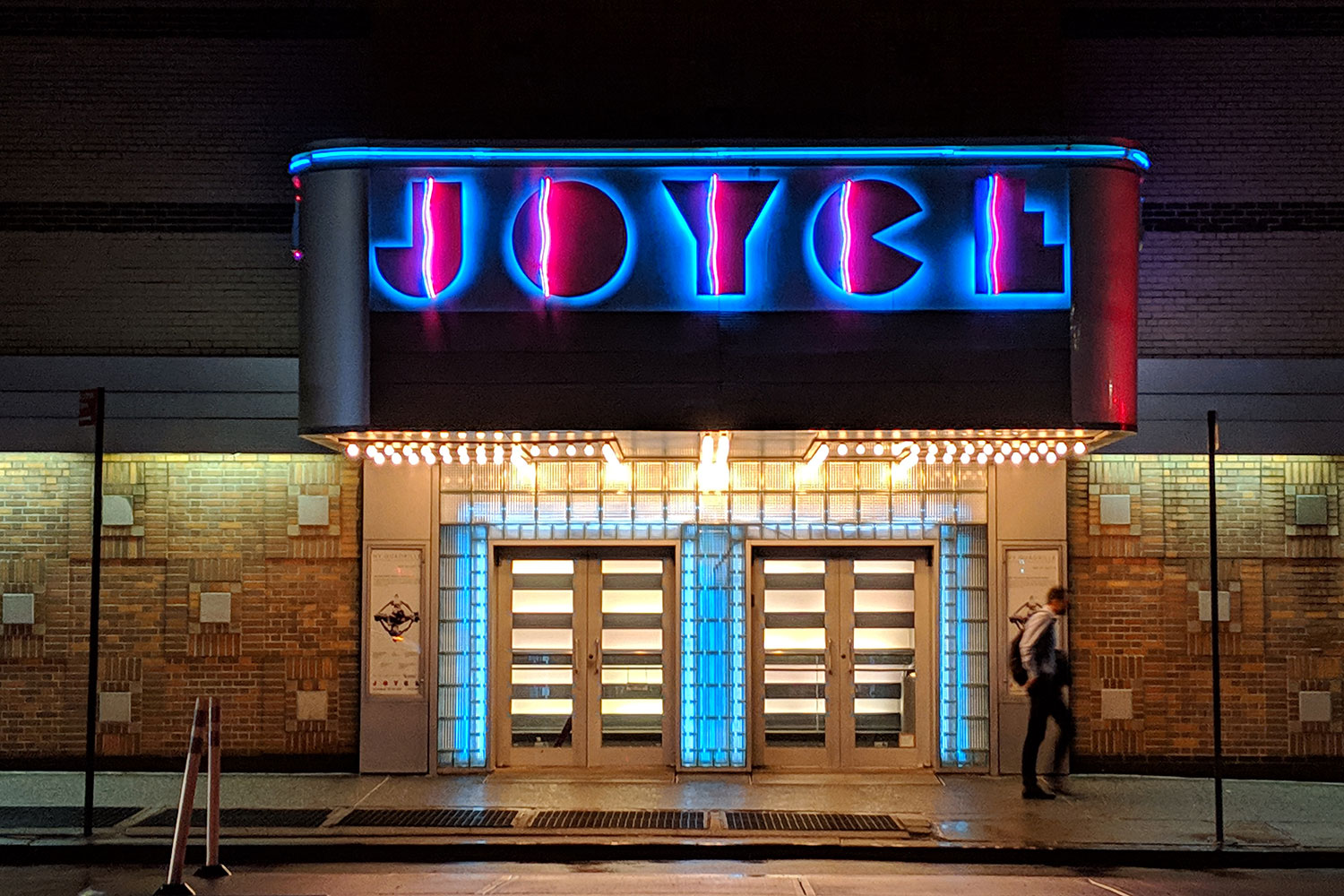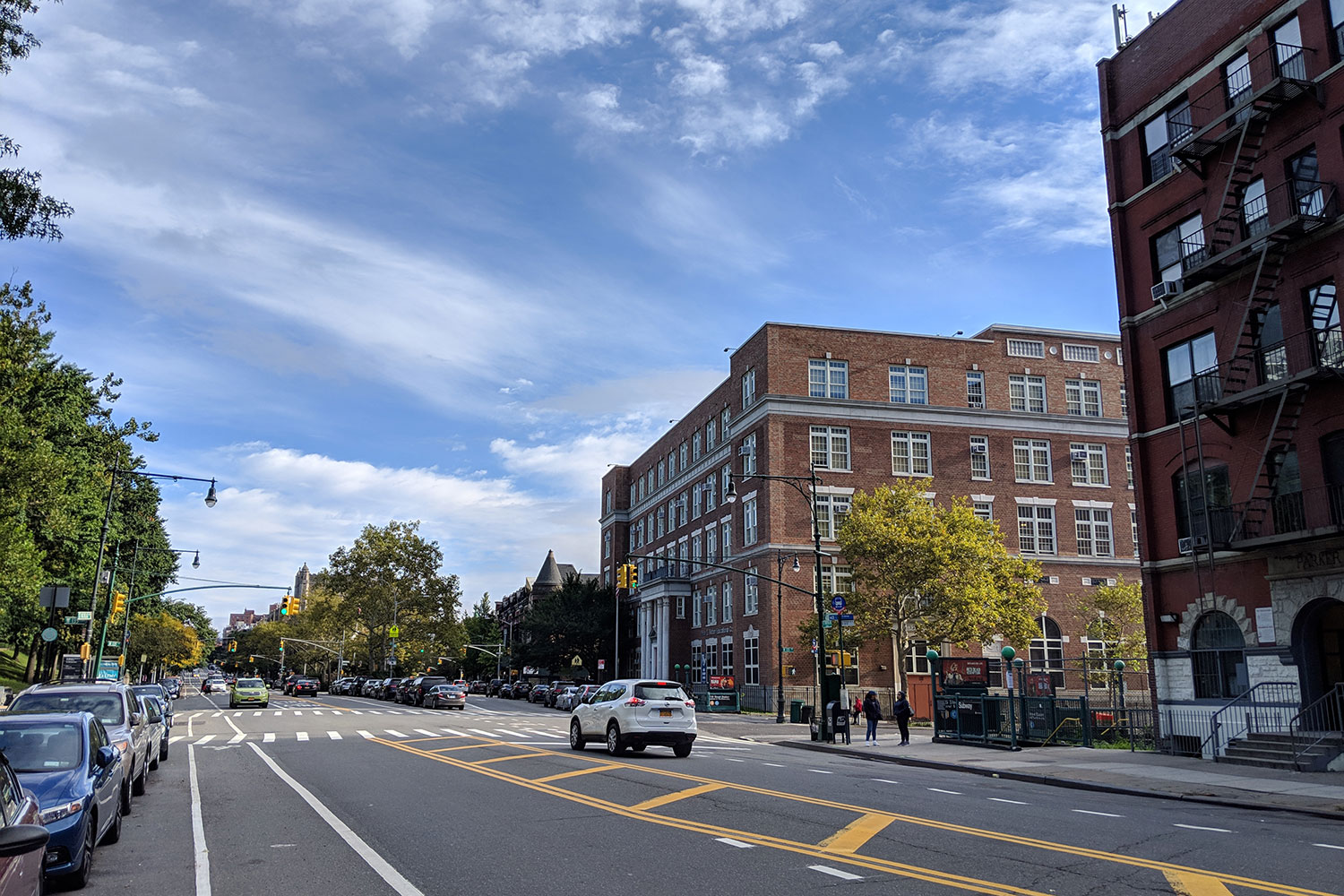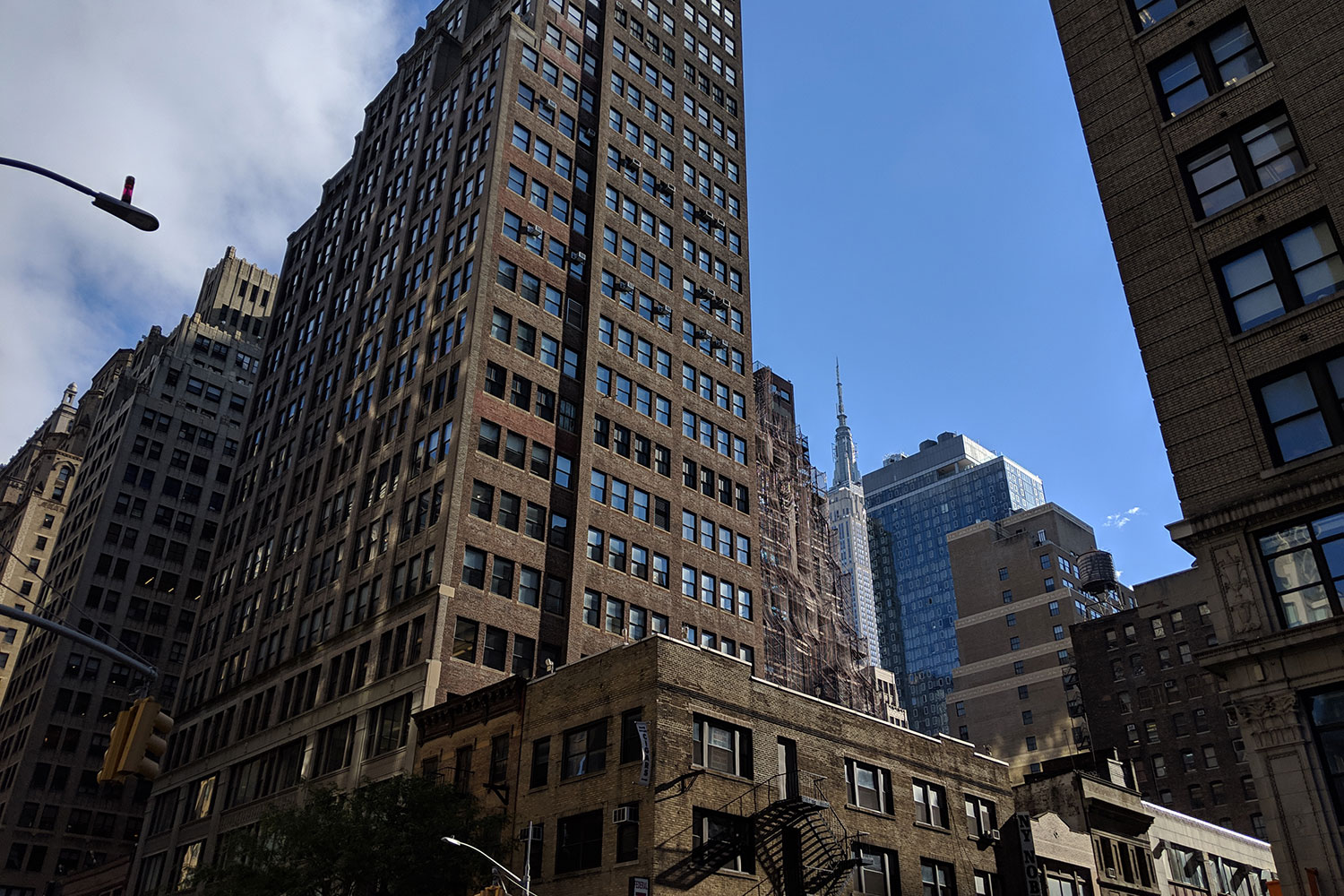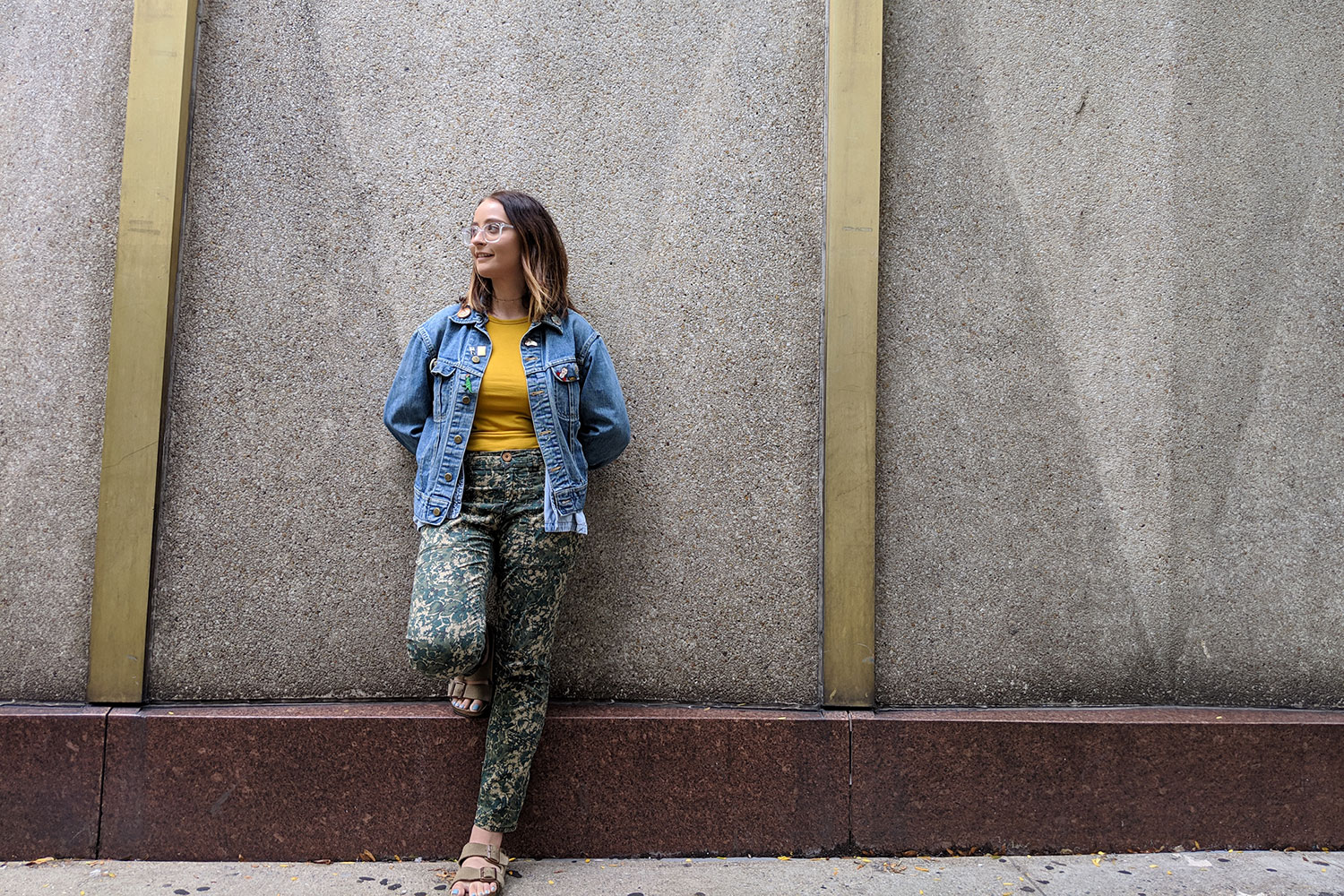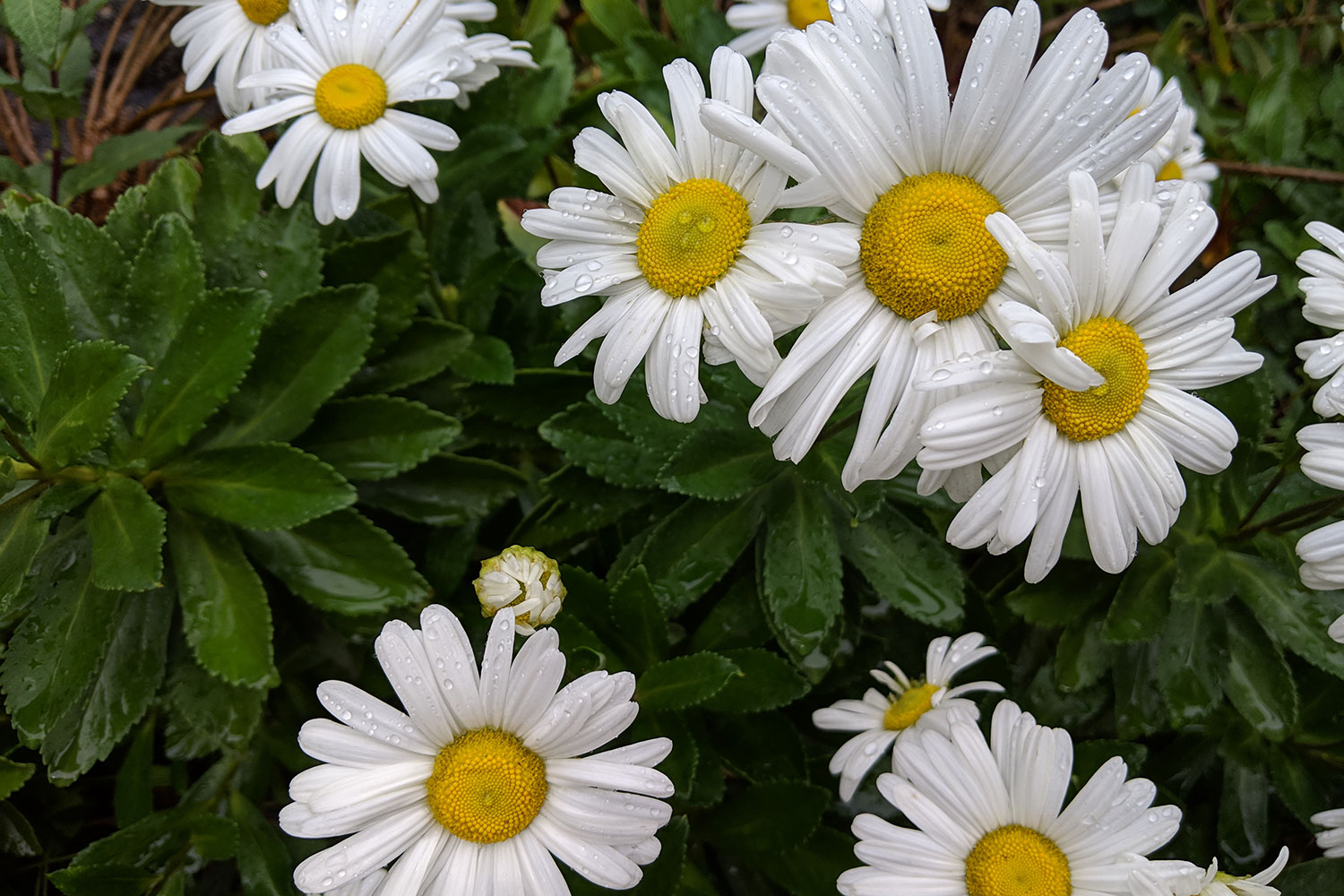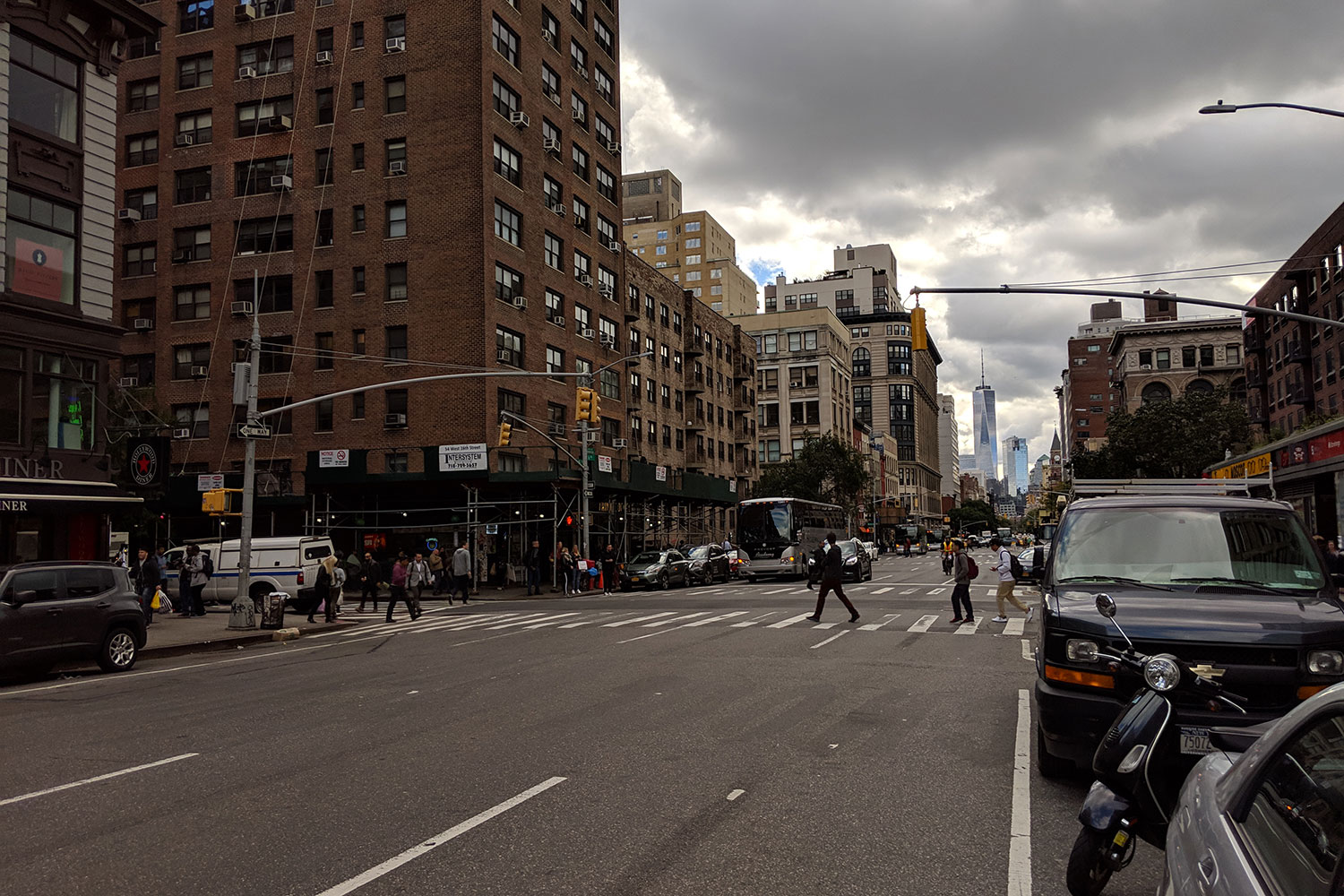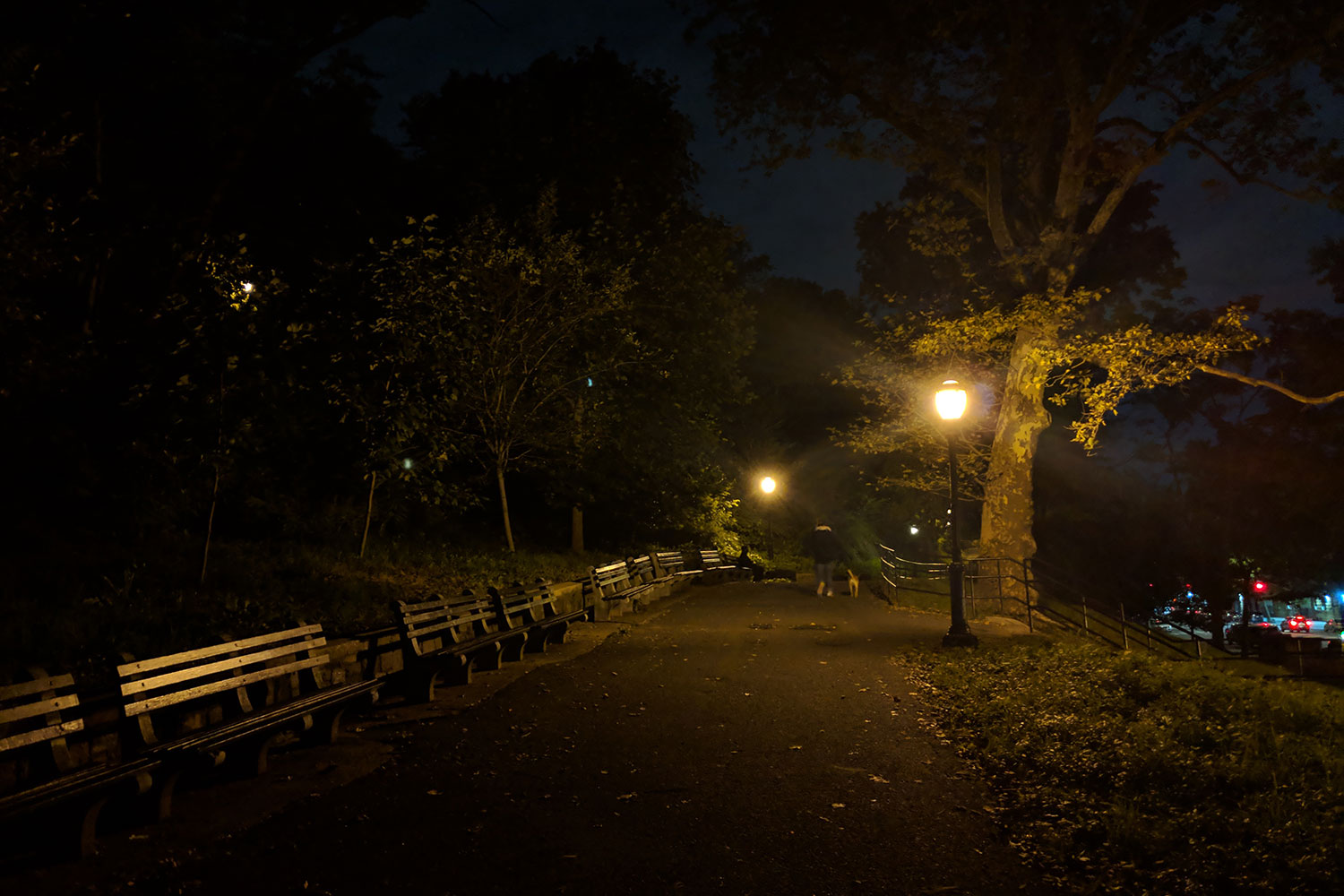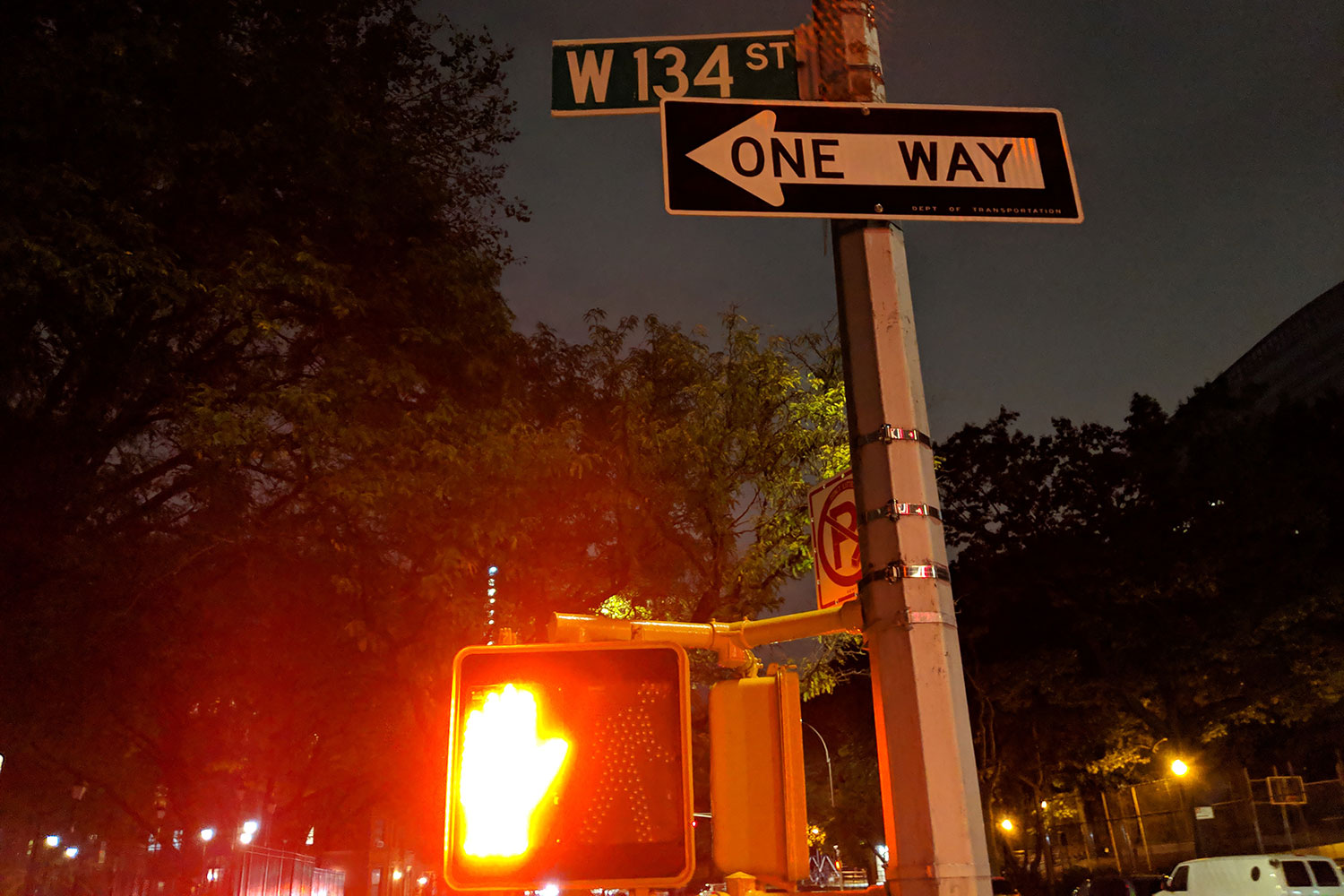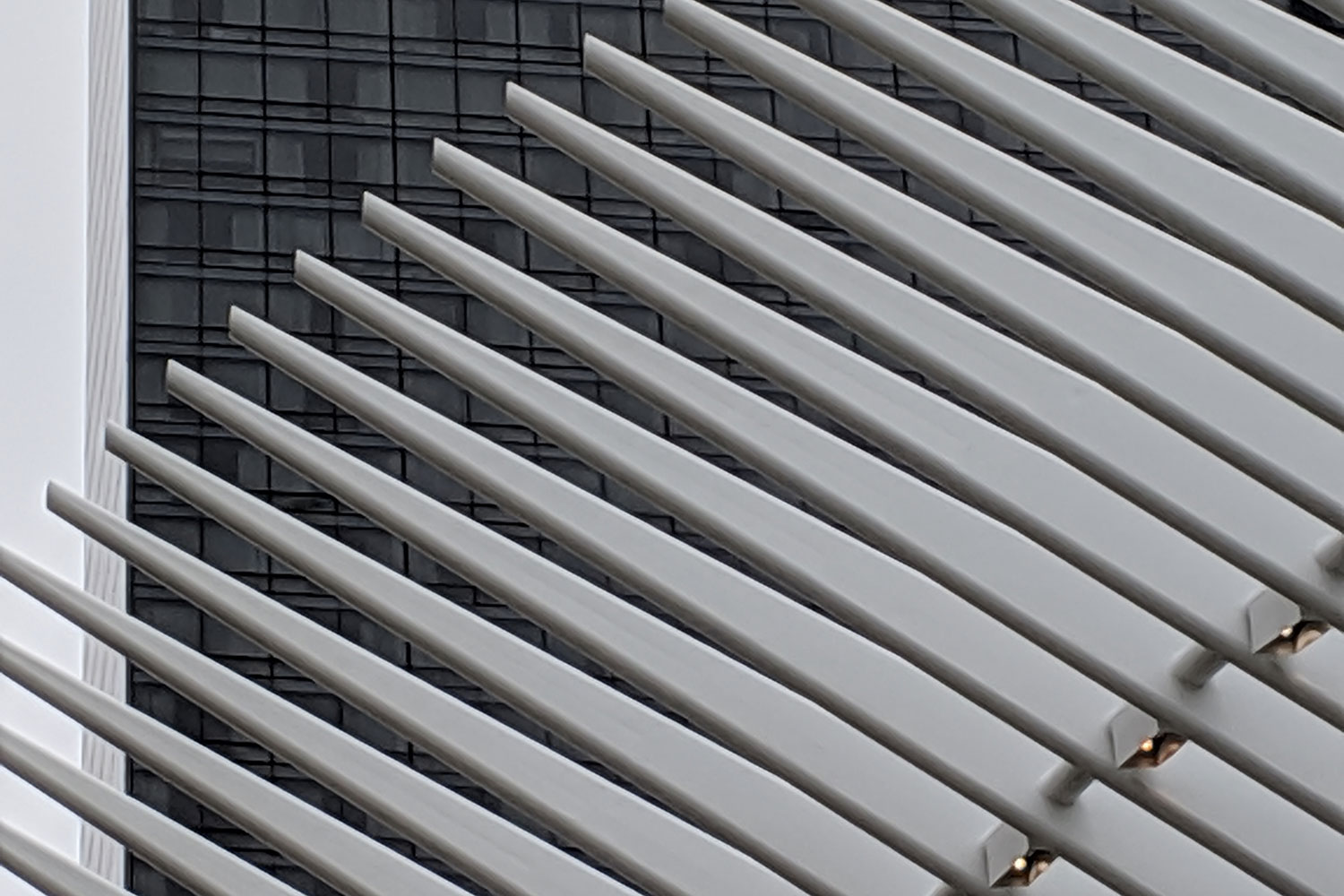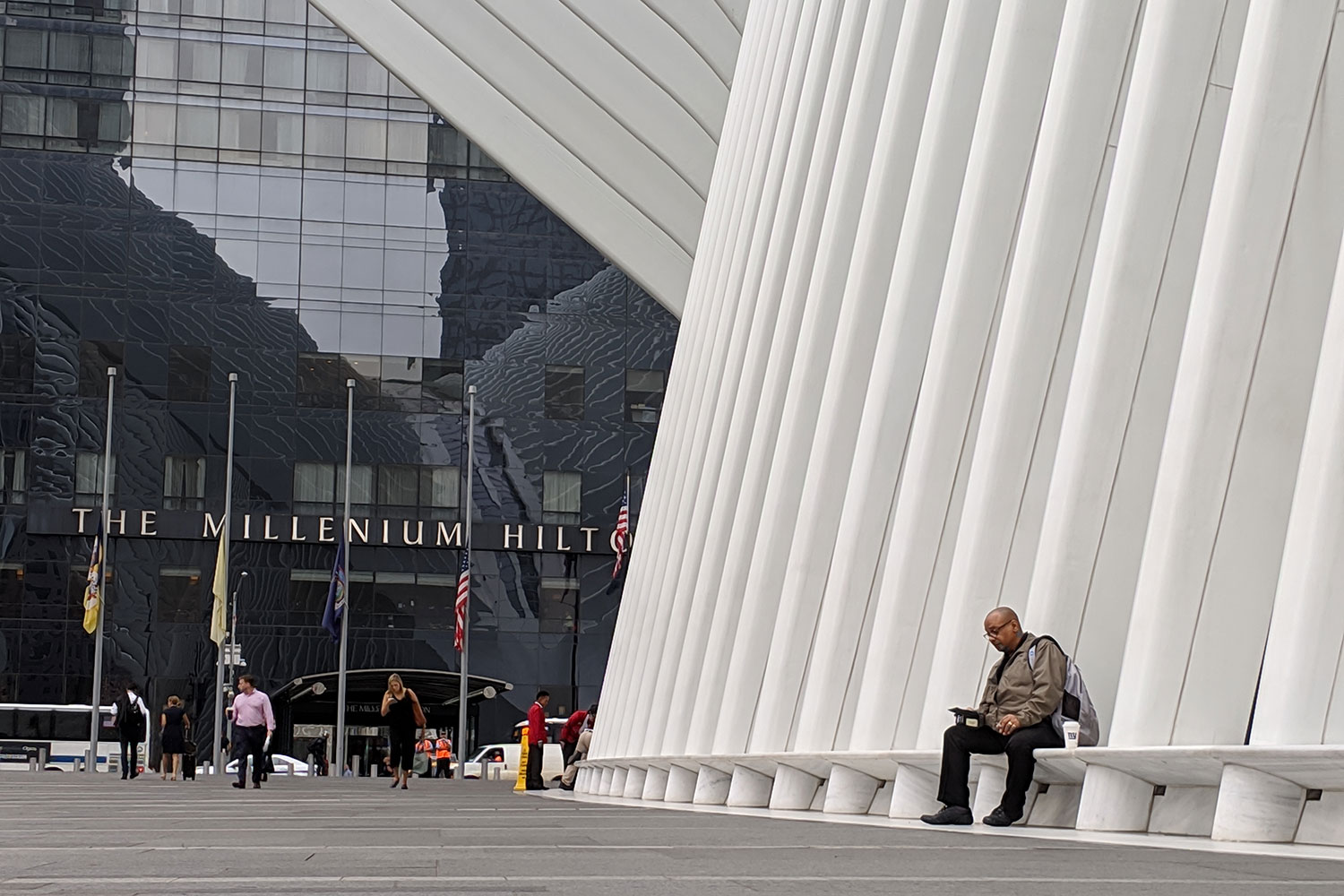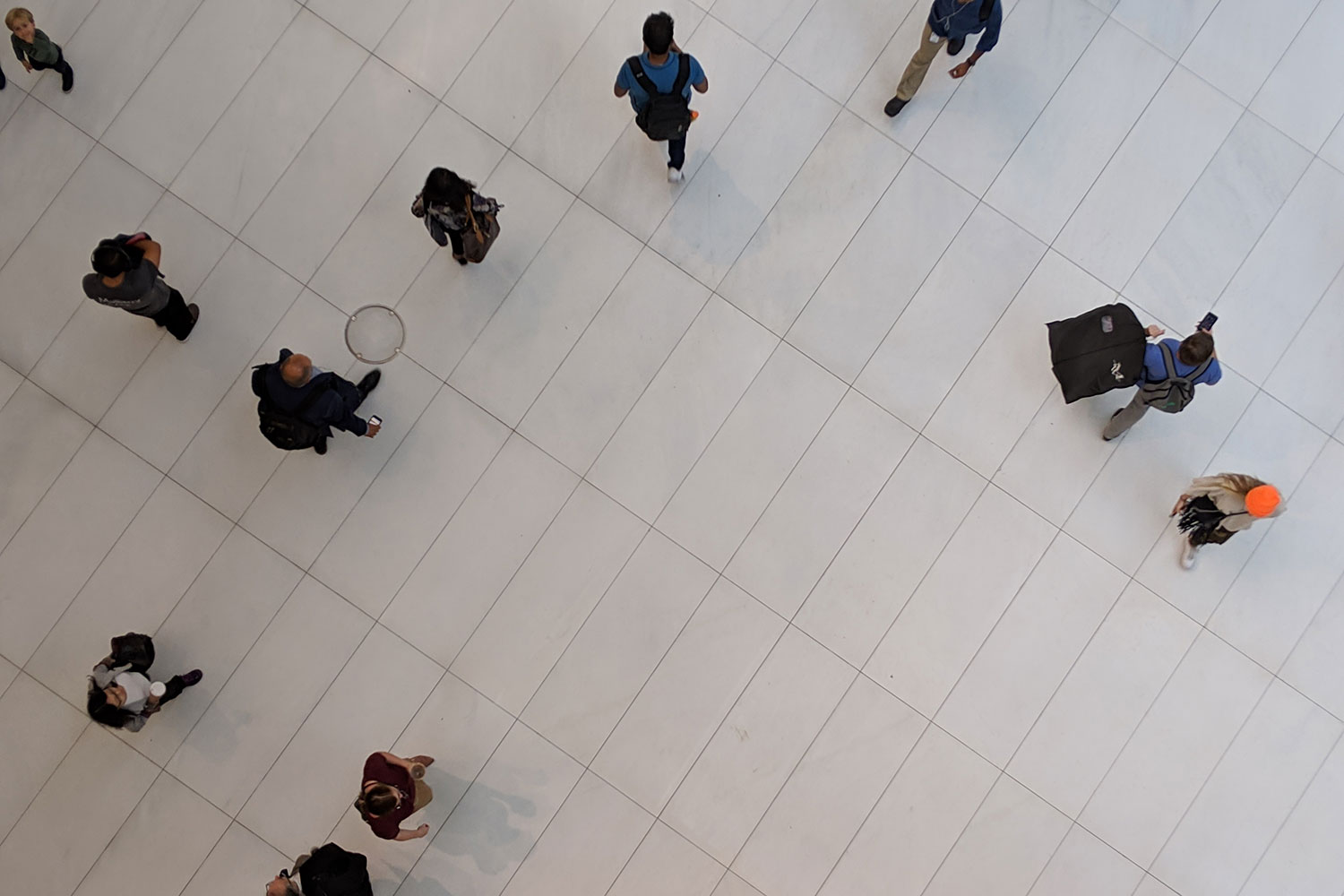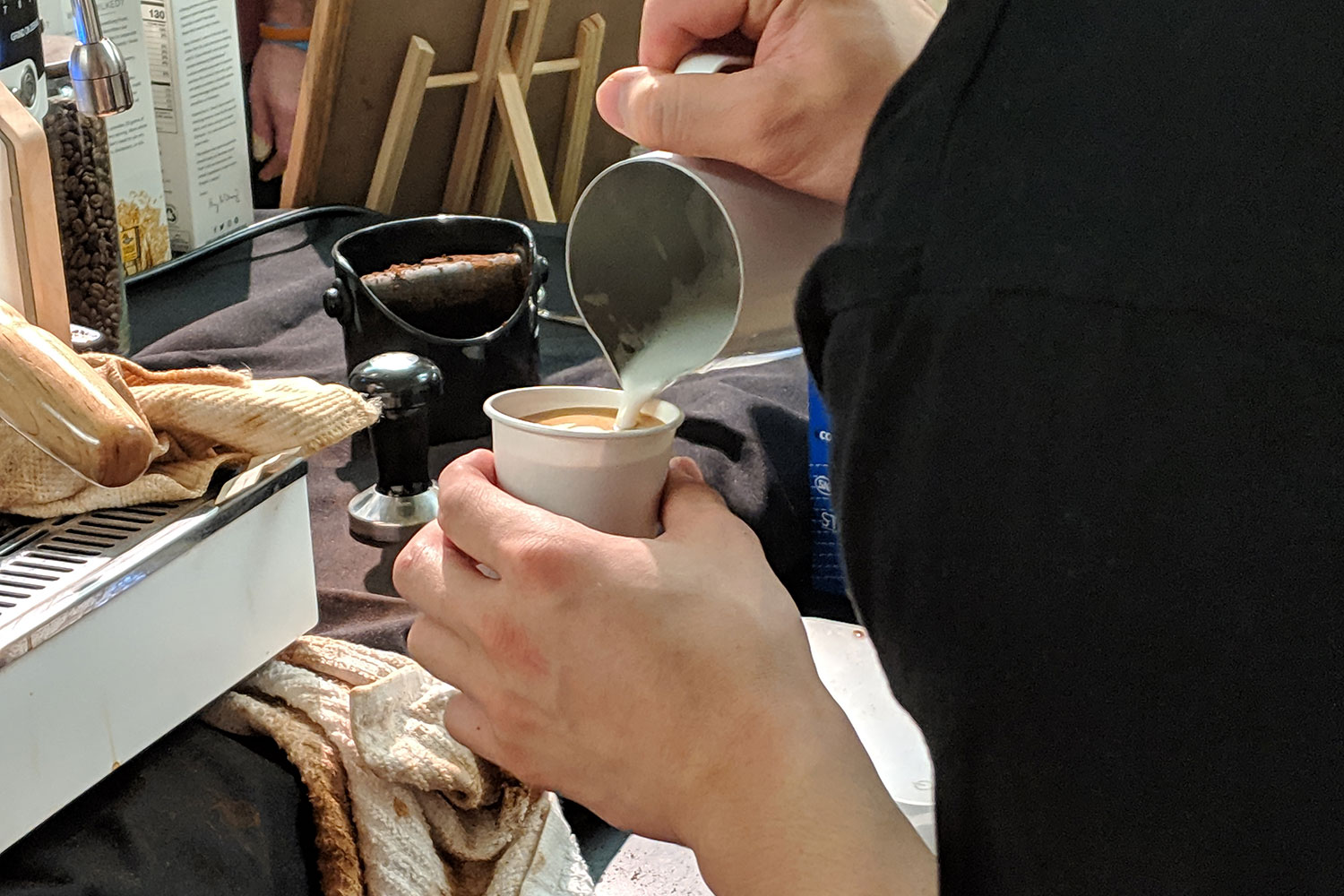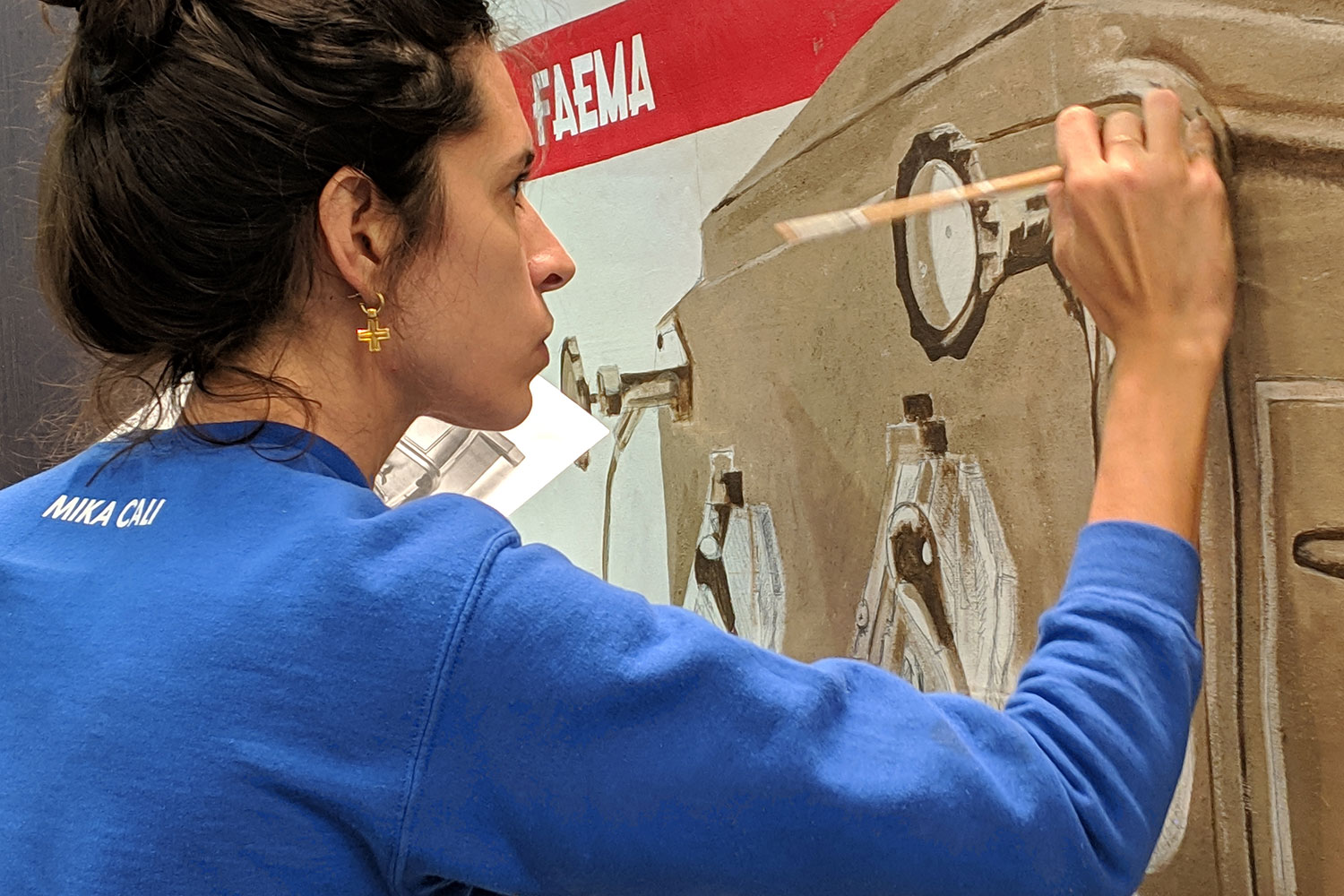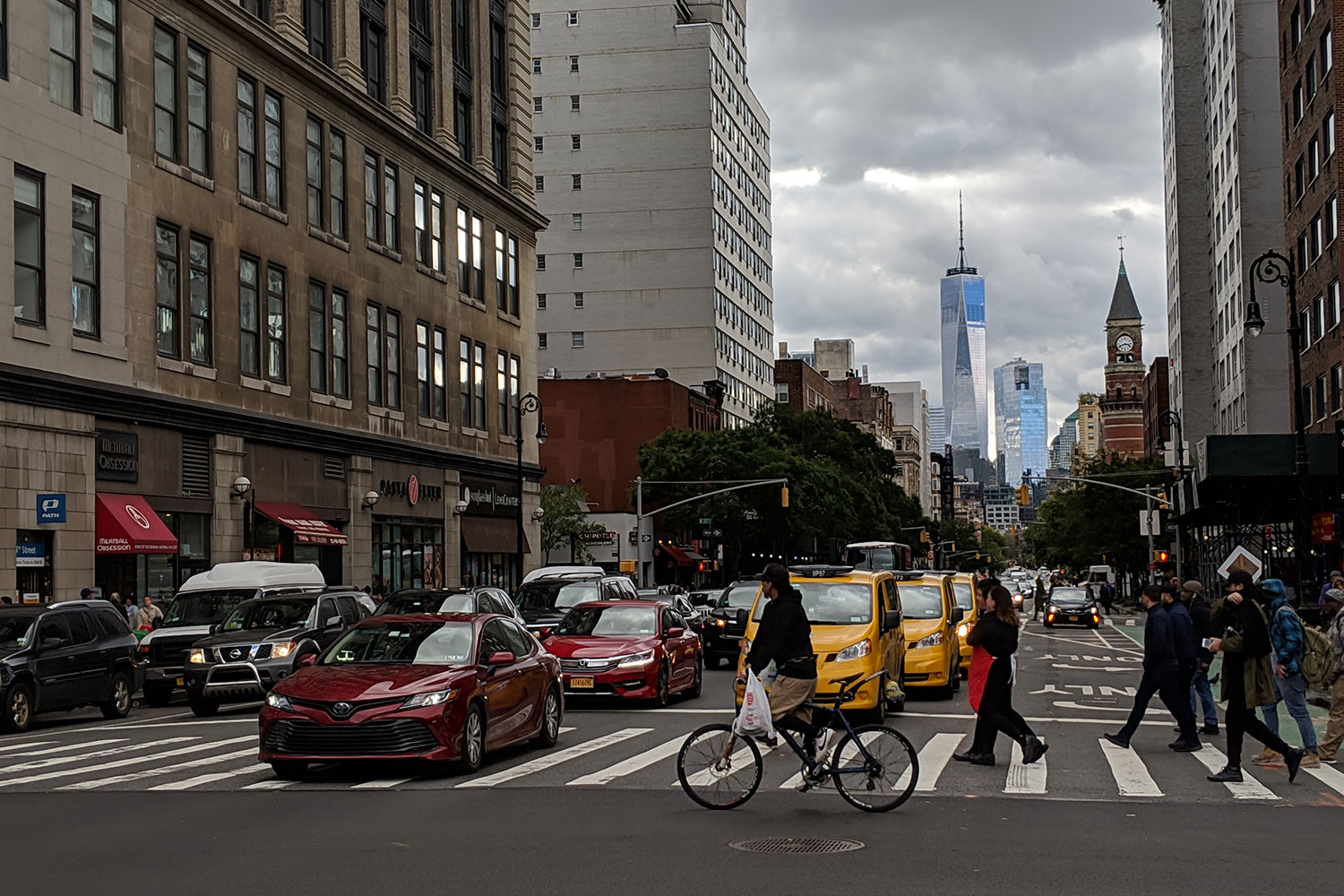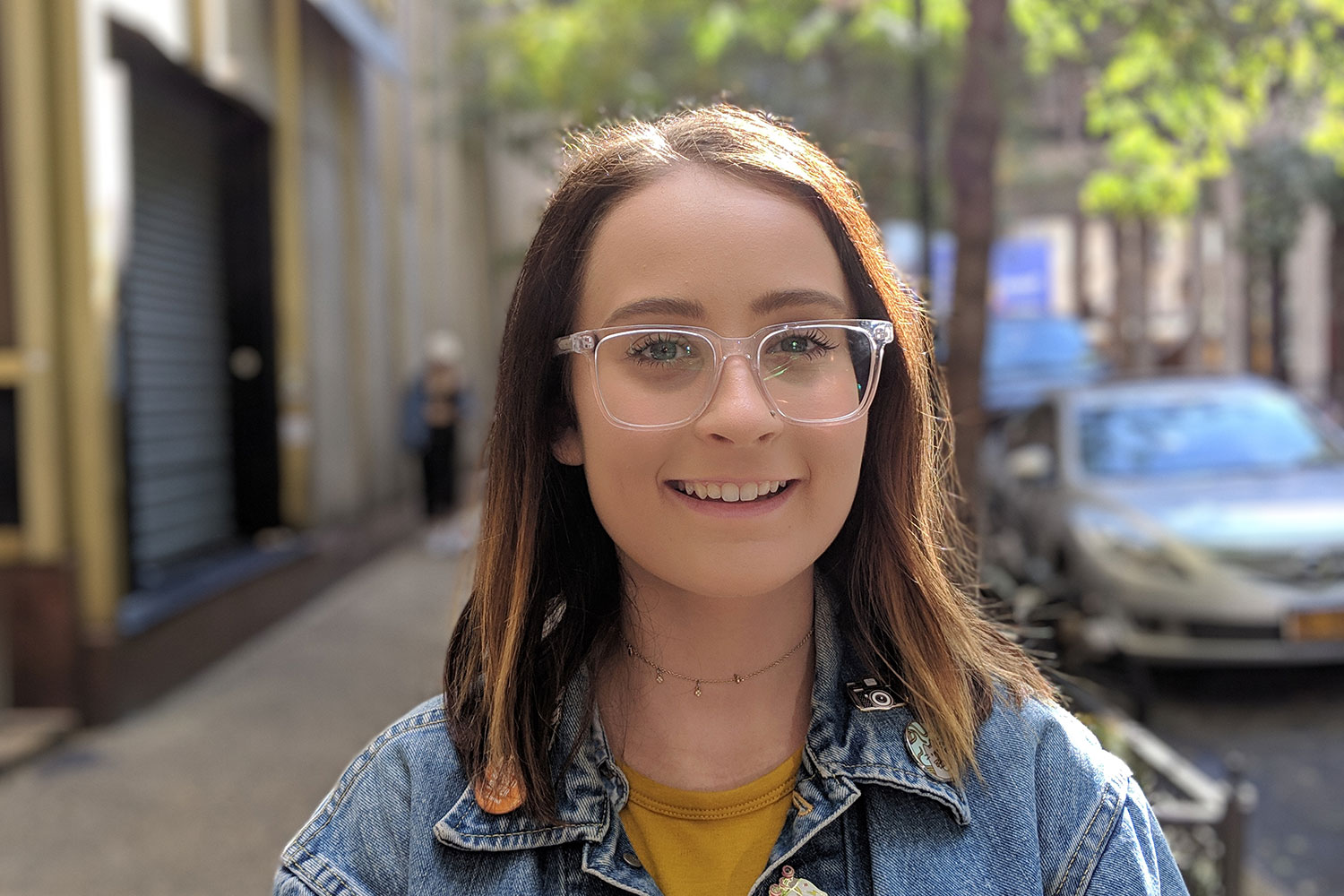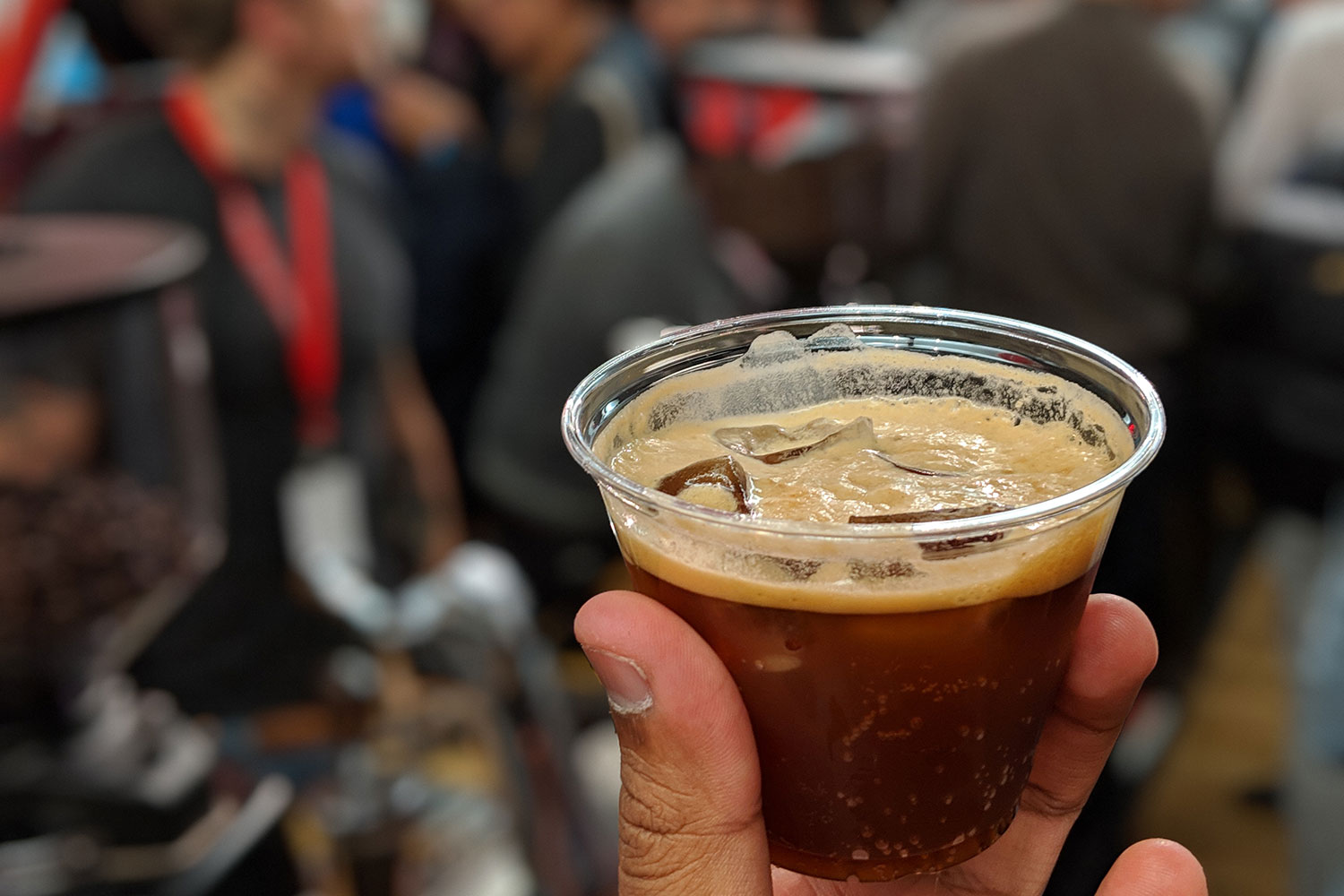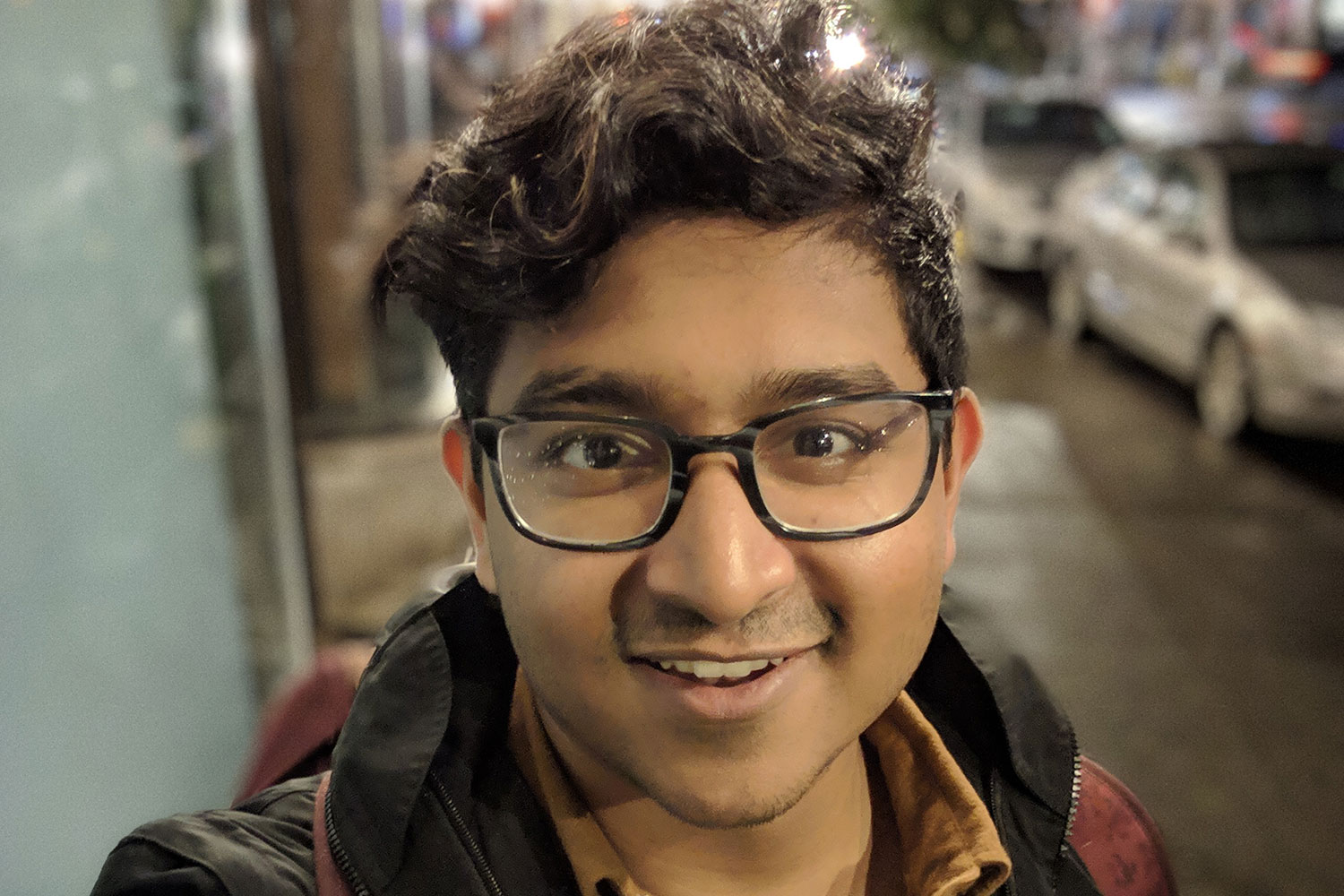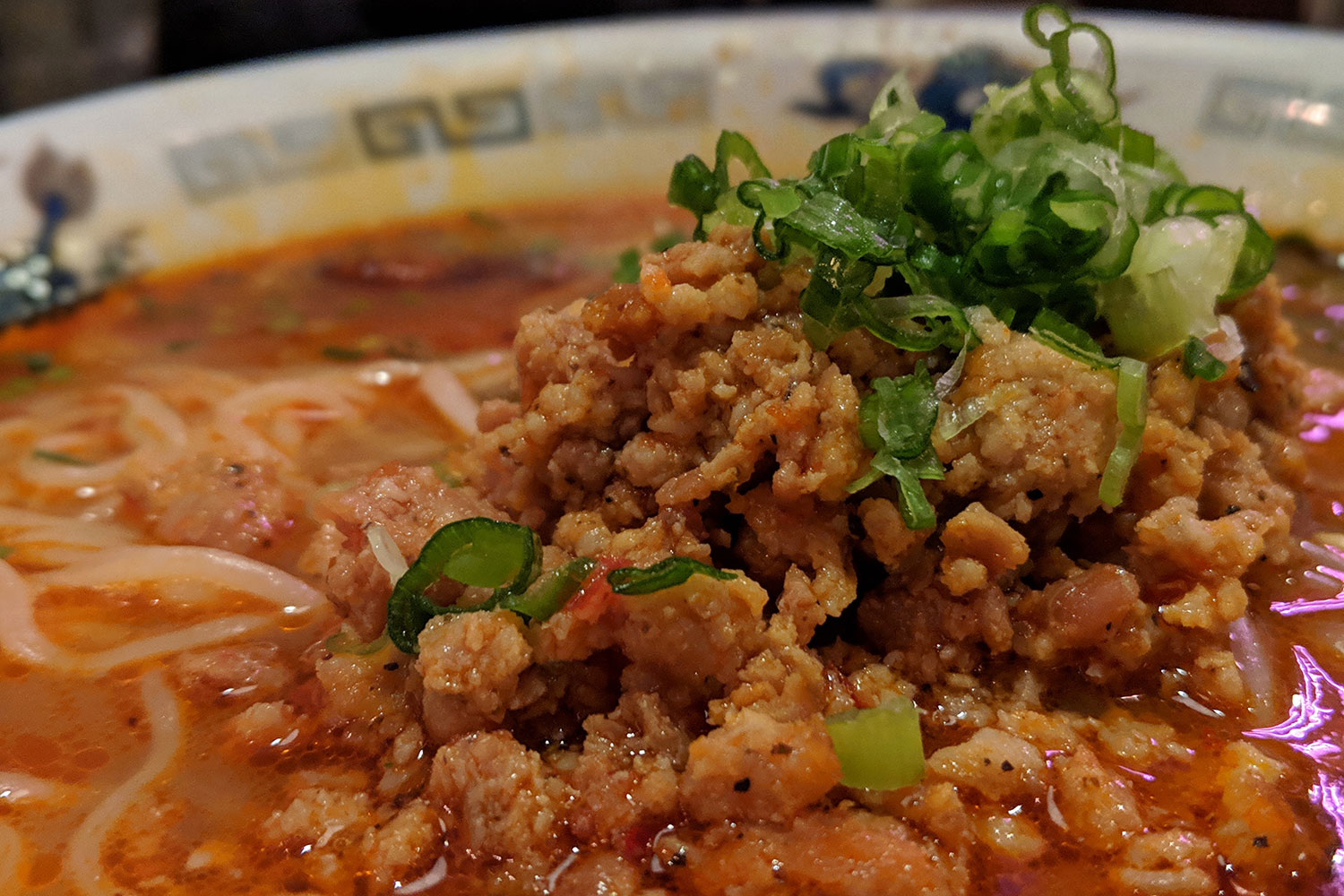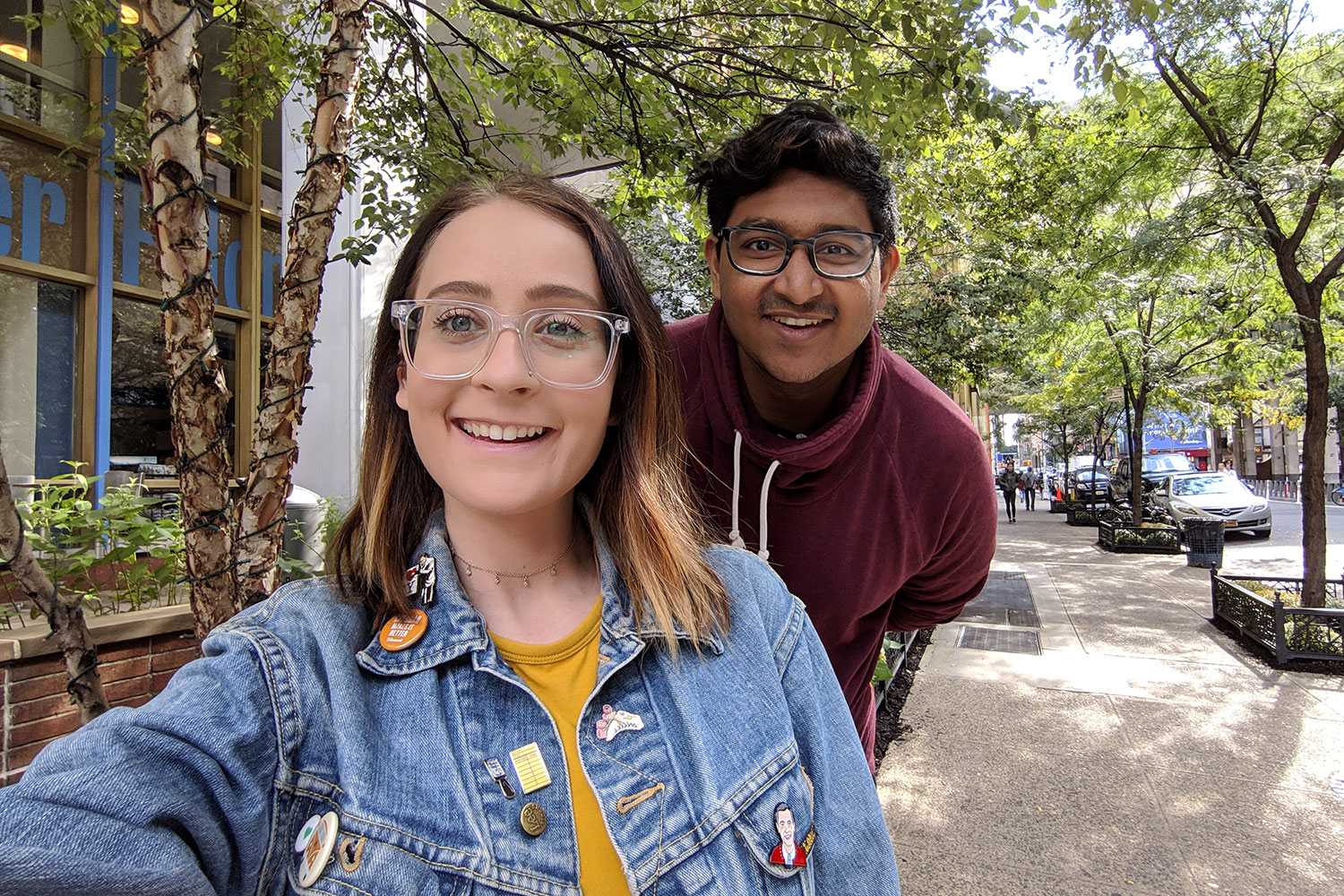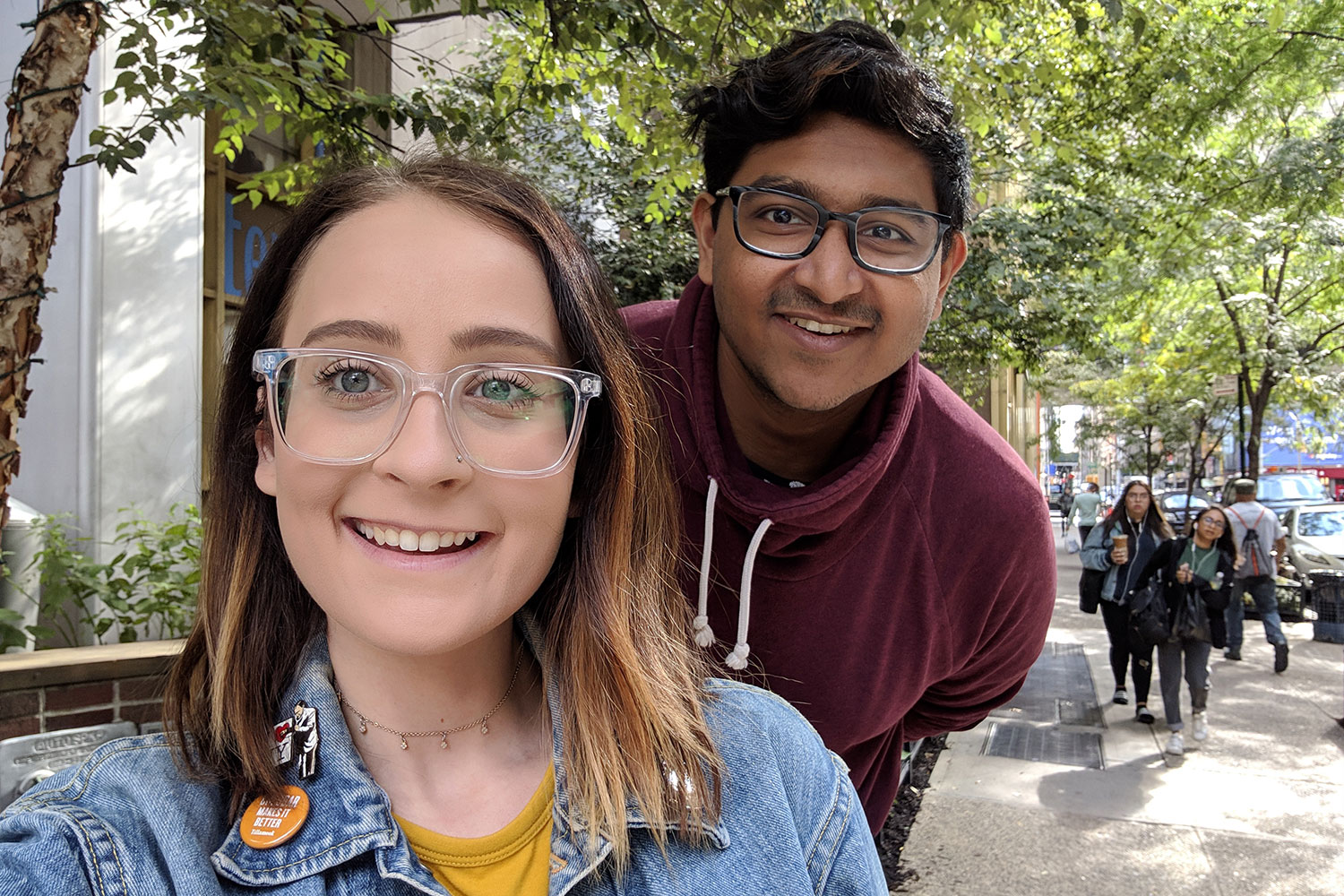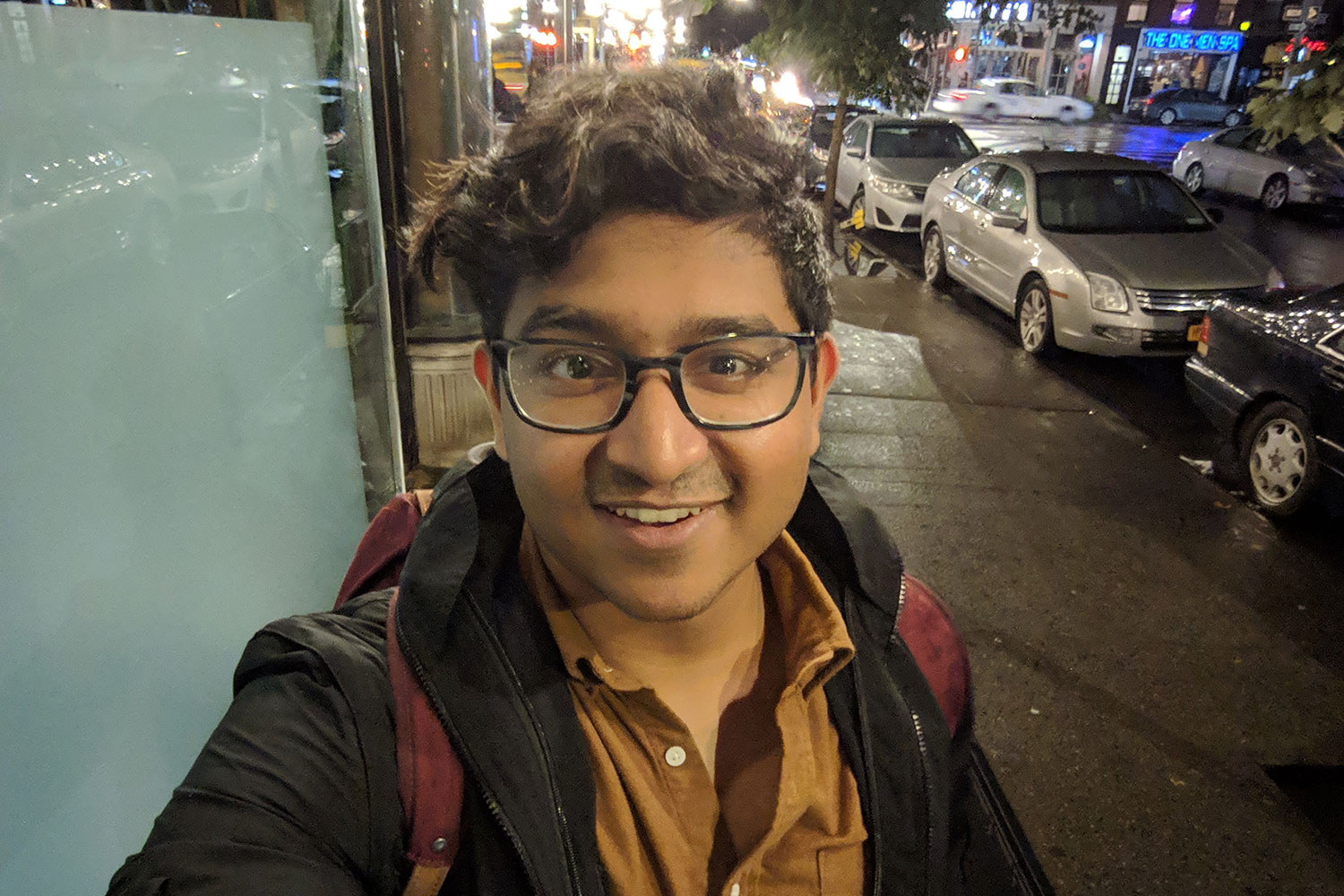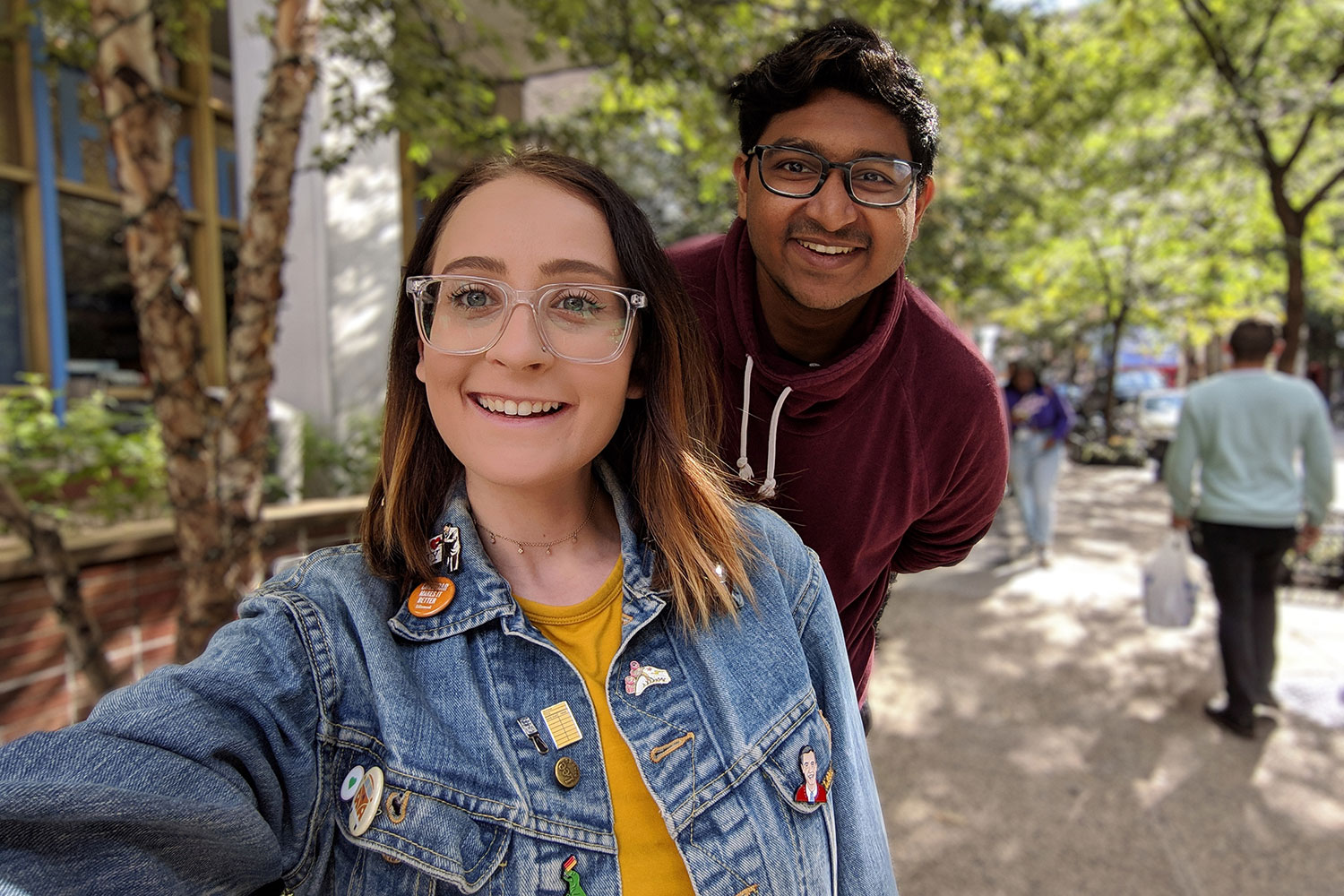“Google's Pixel 3 XL has speed, fantastic software, an excellent camera, and unrivaled A.I. features you can't find anywhere else.”
- Excellent camera
- Fluid software, useful A.I. features
- Fast performance
- Fingerprint-free rear glass design
- Great screen, speakers
- Mediocre battery life
- The notch is really, really ugly
- Photos can sometimes look too saturated
Editor’s Note: The Pixel 4 XL smartphone has been announced with a faster processor and improved camera system, so you may want to wait and buy that new model. If you’re on a budget, however, this is a great time to buy a Google Pixel 3 XL at a deep discount.
Google’s Pixel devices often come so close to being the perfect Android phones, but they falter on the same two things: design and battery life. Google got the design of its new Pixel 3 XL almost right this year, except for the ugly notch on the front of the phone. When compared to the rest of the smartphone market, it sticks out like a $900 sore thumb. Battery life is mediocre, especially when pitted against phones in this price range as well.
But there’s so much else that’s right with the Pixel 3 XL, we are willing to accept these shortcomings. It has the absolute best software experience on any Android phone, period. You also will not find comparable artificial intelligence features anywhere else. As a cherry on top, you get a great screen and speakers, good performance, and a stunning camera yet again. Not to mention it’s one of the best Android phones that will get consistent software updates for quite some time. If you want the best Android experience, this is the best smartphone to buy — just try to ignore the notch.
Looking for the notch-free, smaller Pixel 3? You can read our review here.
Botched notch
The Pixel 3 XL has mostly the same features as the Pixel 3, a strategy Google started with earlier Pixel phones — and one Apple is using for the iPhone XS and XS Max. It means you don’t need to sacrifice features over which model you choose. But, physically, the phones aren’t identical, of course. The Pixel 3 XL has a larger screen — 6.3 inches versus the Pixel 3’s 5.5 inches — offering space for more pixels. The larger form-factor also allows for a larger battery. The only design difference this year is the massive notch on the top-front of the Pixel 3 XL, whereas the smaller Pixel 3 opts for chunky bezels around the screen.
Design is subjective, but we think the notch is ugly, plain and simple. It juts too far into the screen, enough that it looks distracting. We don’t normally moan over the notch on a phone — the Essential phone has an elegant-looking notch, and the iPhone XS’ notch packs impressive hardware inside that give it a pass — but the Pixel 3 XL takes it a bit too far for simply adding a wide-angle lens. LG’s V40 has two cameras on the front, but the notch is much smaller. If the notch has to be this big, it’d be nice if Google included a Face ID-like unlocking method for the phone.
If you can’t stand the size of the notch, you should buy the Pixel 3 — albeit at the expense of a larger screen size. Alternatively, we’ve rounded up a few ways to mask the notch if you really want the Pixel 3 XL’s larger screen.
The notch is ugly, plain and simple. It juts into the screen way too much and looks distracting.
If the front is Mr. Hyde, then the back is Dr. Jekyll — it is handsome. Google is sticking with the two-tone look, but instead of mixing glass and metal, it’s all glass on the rear. Google managed to matte out the entire surface, so it’s not as slippery as other phones and hides fingerprints, which is a frequent complaint we have for all-glass phones. We have read complaints about the back being easily scratched up, but we haven’t seen this on our unit. The Pixel 3 XL feels far more high-end than the Pixel 2 XL, but it’s still not as alluring as Samsung’s Galaxy Note 9 or the iPhone XS.
The fingerprint sensor on the back is in a good position, and it’s fast to react. You can also swipe up and down on it to access the notification shade, which helps with usability on such a large-screen phone.
Like most big phones, the Pixel 3 XL can be a little unwieldy to manage with one hand — even for someone with large hands. We frequently found ourselves repositioning the phone up and down in our hand, in order to access the top or bottom part of the screen. We do love the larger screen real estate, but if you want to comfortably reach all parts of the phone’s screen, you may want to look at the 5.5-inch Pixel 3.
Great display, speakers, and included USB-C earbuds
Last year’s Google Pixel 2 XL suffered some issues with its screen, as some owners complained about a blue tint issue, as well as some other quality control problems. With the Pixel 3 XL, we do see a very faint line of screen burn-in at the top of the screen surrounding the notch.
Now, don’t freak out. This is something we never would have noticed if we hadn’t seen reports of it online. In fact, we are certain most users won’t even notice — you have to really look hard for it. We thought the Pixel 2 XL problems were overblown, and we believe that to be the case here (we’ve seen this in other smartphones before, including those from Samsung). We’ll be keeping an eye on this to see if it develops into an actual problem, but there’s nothing to worry about with the screen on the Pixel 3 XL.
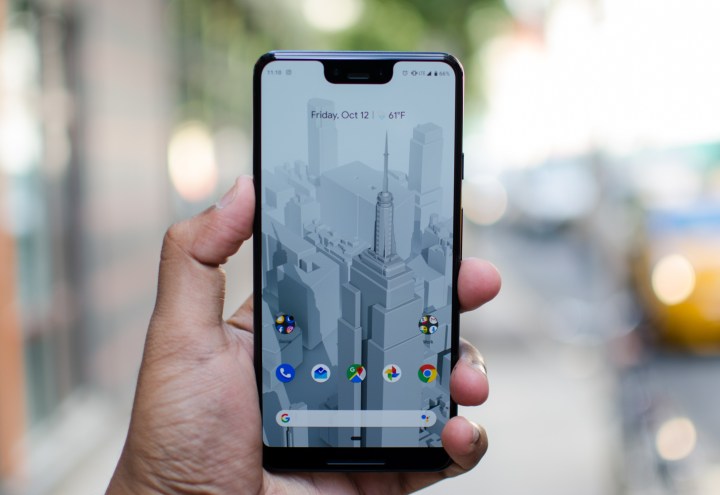
Otherwise, the screen has a sharp 2,960 x 1,440 resolution, and it’s bright enough to see in direct sunlight outdoors (though you’ll need to max the brightness). Colors are vibrant, and there’s an option to tone down the saturation in the display settings if it’s too much for you. The screen delivers deep black levels, which helps the colors pop out even more.
The great screen and speakers make watching movies and videos on the Pixel 3 XL a joy.
Dual front-facing speakers return, which is why there’s a chin (the bezel below the screen) on the front. Google said the speakers are 40-percent louder than last year’s Pixel 2, and the difference is noticeable. The Pixel 3 XL sounds richer and more robust than its predecessor, and it easily got loud enough to fill a room. We prefer it over the bottom-firing speakers on the iPhone XS or the Note 9, because half the sound is usually directed away.
The great screen and speakers make watching movies and videos on the Pixel 3 XL a joy.
There’s no headphone jack, but Google wins some points for including USB Type-C earbuds in the box, as well as a 3.5mm headphone jack adapter (hint, hint, Apple). These USB-C earbuds have a few features similar to the Pixel Buds, wireless earbuds Google unveiled last year. Tap a button on the wire to access Google Assistant, and Assistant can also deliver alerts when notifications arrive on your phone. The earbuds sound good, and we love how speedy it is to access Assistant with them.
Speaking of Google Assistant, you can squeeze the phone to trigger Google’s helper, just like last year.
Good performance
The Pixel 3 XL is powered by Qualcomm’s Snapdragon 845 processor with 4GB of RAM. The processor is on par with almost every Android flagship smartphone in 2018, but the RAM is low compared to other phones in this price range. For example, the OnePlus 6, Razer Phone 2, and Galaxy Note 9 come with 6GB of RAM. Whether you need a lot of RAM in a smartphone is still up for debate, and we’ve yet to run into any issues with performance on the Pixel 3 XL.
Here are a few benchmark results:
- AnTuTu 3DBench: 234,257
- Geekbench 4 CPU: 2,302 single-core; 7261 multi-core
- 3DMark Sling Shot Extreme: 2,374 (Vulkan)
The scores are on the lower end of phones using the Snapdragon 845 processor. The Sony Xperia XZ3 scored 281,131 on AnTuTu, and the Note 9 follows with 273,992. The iPhone XS is still king with an almost unbeatable 334,325 AnTuTu score. All this being said, you won’t notice a difference in performance on the Pixel 3 XL. Apps open up quickly, and switching between them feels fluid. Games like Alto’s Odyssey and Breakneck performed smoothly without any problems whatsoever.
There’s no MicroSD card slot, but there are options for 64GB or 128GB of internal storage. Google is still offering free photo storage for Google Photos in the original resolution, which should help free up internal storage.
Thoughtful software
The most compelling features of the Pixel 3 XL, short of its camera, is its software and Google’s artificial intelligence capabilities. The phone runs Android 9 Pie, which is an excellent version upgrade that improves the look of the operating system, while adding brilliant tweaks such as the smart rotate button that prevents automatic screen rotations. We’ve explored Pie already, and you can read up on all the new features in our handy roundup.
The software experience on the Pixel 3 XL is almost perfect. It’s filled with small touches that enhance the overall interface. The new “Flip to Shhh” feature easily lets you turn the phone over to trigger Do Not Disturb mode, and when you pick it back up, a small vibration lets you know the mode has turned off. The haptic vibrations throughout the phone in general feel stronger, though they’re not quite as fine-tuned as Apple’s taptic engine.
One of our favorite features on the Pixel 2 makes a return — Now Playing. It uses on-device machine learning to identify songs playing in your surroundings and display it on the phone screen, before you decide to try and find it yourself. Now it’s even better on the Pixel 3, as you can see a history of the songs identified by the phone.
We also tried out Gmail’s Smart Compose feature, which is coming to mobile first with the Pixel 3. It’s Google’s A.I. finishing sentences for you, which takes some effort out of writing addresses, phone numbers, and more. Google’s Duplex technology will also come to the Pixel 3 later this year. It lets you ask Assistant to book a restaurant reservation for you, and Assistant will place a call and handle everything itself. We tried it out earlier this summer, but we haven’t had a chance yet on the Pixel 3 because it’s not available yet. At first Duplex will only work in a handful of major cities, before expanding elsewhere.
You’re stuck with Android 9 Pie’s gesture navigation system, which is manageable, but it’s not our favorite.
But the cherry on top is Google’s Call Screening service. If you’re tired of answering robocalls, you can now tap the “Screen call” option when you get a phone call. Google Assistant will take the call, and tell the caller to say why they are calling. You’ll get a live transcription of what the person on the other end is saying. The real-time transcription is fairly accurate, though there are often errors sprinkled in. Regardless, you’ll know if it’s a genuine person or a robocall within the first five seconds of seeing the transcription. You can decide to answer the call, or mark it as spam. We’ve had the pleasure of using it on a few robocalls already, and it’s undoubtedly become one of our favorite features on the phone.
All of the features mentioned above except “Flip to Shhh” are also coming to the Pixel 2 and the original Pixel.
So why do we say the software experience is “almost” perfect? You’re stuck with Android 9 Pie’s gesture navigation system, which is manageable, but it’s not our favorite. There’s no option to go back to the traditional Android buttons. We’ve gotten accustomed to navigating Android on the Pixel 3 XL, but the system is not as intuitive as gestures on the iPhone XS.
Stunning camera
The Google Pixel 2’s camera was at the top of our list of best camera phones since its release, and while we have plenty more phones to go for 2018 before we can crown a winner, the Pixel 3 XL is up there. The Pixel 3 XL is a solid improvement, all while maintaining the single-lens camera system on the back. It’s a 12.2-megapixel lens with a f/1.8 aperture. We’ve yet to notice any lag in the camera app, and it just feels more fluid than ever before, with a much more intuitive layout.
Overall, expect photos to be incredibly detailed and sharp. That’s Google’s improved HDR+ in action, thanks to a new image sensor that should help with better dynamic range and low light. We have noticed, however, that photos tend to look a tad more saturated on the Pixel 3 XL over the Pixel 2 XL. This isn’t the case all the time, and sometimes the Pixel 3 does a better job managing skin tone than the Pixel 2.
In low light, there’s a good deal of grain, but the Pixel 3 XL manages to preserve enough detail for photos to look good. The iPhone XS and Note 9 tend to do a better job in dealing with noise.
- 1. Pixel 3 XL
- 2. Pixel 2 XL
- 3. Note 9
- 4. iPhone XS Max
The Pixel 3 XL adds a new feature called Top Shot, which helps preserve key moments you may have missed. This works because the Pixel 3 in general takes a number of shots before and after you tap the shutter icon. So if someone looks away right when you take a photo, Top Shot lets you see all the photos before and after you tapped the button, and it will automatically recommend the best one. The recommendations aren’t always perfect, but we have managed to save photos we otherwise would’ve missed. That being said, we do wish the image quality was better. The best image resolution is saved for the photo you actually snapped, while all the extra photos are stuck with a much lower resolution.

More impressive is Super Res Zoom, which reduces the noise in photos captured by digitally zooming in. There’s no optical zoom on the Pixel 3 XL, so zooming in to capture a photo won’t look as good as using the 2x optical zoom on phones like the LG V40, Galaxy Note 9, or the iPhone XS, but the results are close. It works far better than expected, and if you zoom in past the telephoto lenses on those dual camera systems, the Pixel 3’s image quality wins almost every time.
- 1. Pixel 3 XL
- 2. Pixel 2 XL
- 3. Note 9
- 4. iPhone XS Max
While having a secondary telephoto lens would have been nice, we’ve found ourselves using the Pixel 3’s half-zoom much more because of the improved image quality, which is good enough to share to social media.
Portrait Mode is also better than ever before, and we think the Pixel 3 XL takes the cake for having the best Portrait Mode over any other phone — that applies to the front and rear camera. It accurately identifies the edges of a subject (with the occasional error), and the bokeh effect is much stronger than on the Pixel 2. Details are incredibly sharp, especially in low light, which is something that can’t be said for many other phones.
- 1. Pixel 3 XL
- 2. Pixel 2 XL
- 3. Note 9
- 4. iPhone XS Max
Portrait Mode on the Pixel 3 XL is one of our favorite modes to use, and it often works incredibly well on non-living objects as well. You can now edit the blur intensity after you take a photo, which is a feature Apple also just introduced on the iPhone XS.
We love the addition of the wide-angle lens on the front, which means there are two selfie cameras now. Both are 8-megapixel cameras, with the main lens having a f/1.8 aperture, and a secondary wide-angle lens with a f/2.2 aperture. You can use the wide-angle lens for group shots, or to simply take in more of the scenery in your selfie. Switching between both cameras is incredibly fluid, and Portrait Mode works with both, so photos can stand out even more. Image quality is good, though not as sharp as the rear cameras. It’s a lot of fun playing around with the wide-angle lens, and we sorely wish Google added one to the back of the phone for further versatility.
There are a few more notable camera features built into the Pixel 3 camera. Photobooth, for example, uses Google’s Clips technology to predict the best time to take a photo. It’s fun, but the feature is hidden away. The same is true for Playground and Google Lens. Playground lets you add augmented reality stickers and characters into your photos, though we haven’t found them too enticing to use, and Google Lens lets you point the camera at objects, landmarks, business cards, and more for information. What’s neat is Google has injected Google Lens directly into the Pixel 3’s camera, so as long as you point the camera at something, you’ll see Lens Suggestions pop up on the viewfinder in case you want more details.
The Google Pixel 3 XL’s camera takes excellent photos, but the competition has caught up.
The Pixel 3 can also now automatically track moving subjects in videos to maintain focus, and it works really well. There’s one more feature called Night Sight, and it’s meant for super dark environments. It’s now available as an update to the Google Camera app, and it uses A.I. to fill in color for ultra dark photos, dramatically improving them. We dive more into detail here, but take a look at the two photos below to see just how it can improve your low-light photos.
- 1. Pixel 3 low-light selfie.
- 2. Pixel 3 Night Sight selfie.
Top Shot, Lens Suggestion, Photobooth, Super Res Zoom, and Motion Auto Focus are exclusive features to the Pixel 3, but if you have a Pixel 2 or the first Pixel, then you should have received an update adding Night Sight and adjustable portrait blur.
The Google Pixel 3 XL’s camera takes excellent photos, but the competition has caught up, and that means the Pixel 3 XL is not always going to take the absolute best photo. Its strengths are in the zero shutter lag camera, portrait mode, having excellent detail, and good low-light capabilities, but its weakness is color tone, as the camera’s photos often had a different hue that wasn’t similar to reality.
Mediocre battery life, but the Pixel Stand is great
Our biggest disappointment with the Pixel 3 XL is battery life; it’s manageable, but if you’re a heavy user, don’t expect to get through a full day without charging up once. We started most of our days with 100 percent at 7:30 a.m. — with heavy usage, including lots of picture taking, video and music streaming, browsing, and some gaming, our Pixel 3 XL hit 25 percent by 3 p.m. with about 3.5 hours of Screen on Time.

With lighter to medium usage, the phone naturally fares better. We managed to hit 8 percent by 10:30 p.m. once, mostly using the phone for music streaming and browsing. Still, we’d have liked to see Google pack a bigger battery like Huawei did with the P20 Pro, ensuring the phone made it well past a day. At the very least, fast charging support with the included 18 watt wall charger and USB-C to USB-C charging cable will give you a good deal of juice in just 15 minutes.
Google’s A.I. is also one of the best at accurately suggesting the time the phone is expected to die based on usage. This type of feature is available on a variety of other phones, but usually the estimates for battery life when you have 20 percent or so remaining are wildly exaggerated and never accurate. Google’s guesses are reasonable and genuinely helpful.
The Pixel 3 XL is the first Pixel phone from Google to support wireless charging, and it’s a welcome addition. Your phone won’t charge any faster, but not having to fish around for a cable is convenient. Google sells a separate Pixel Stand wireless charger as a separate accessory, but it does so much more than charge the phone. We took a closer look here. but it’s safe to say this is the wireless charger to buy if you get the Pixel 3. It offers up fast access to Google Assistant, can turn into a digital photo frame, can turn the display completely off or turn on Do Not Disturb mode when the phone is placed on it, and it can help wake you up by blasting ambient light 15 minutes before your alarm. It’s well worth its $79 price.
Price, availability, and warranty information
The Google Pixel 3 XL is available for sale, and prices start at $899. The phone is sold through Google and Verizon, but if you buy it from the Google Store, you can use it on any major carrier network in the U.S. You can check out all your options for buying this phone in our Pixel 3 XL buying guide.
Google offers a standard one-year warranty that protects the phone from manufacturer defects from the date of purchase.
Our Take
The Google Pixel 3 XL won’t wow with its looks, but show off the camera and its A.I. capabilities, and you’ll see jaws drop. It has one of the best cameras in a smartphone, and hands down the best software experience on an Android phone.
If you’re looking for a discount, take a peek at the best Google Pixel deals as well as the best smartphone deals available now.
Is there a better alternative?
Yes. Your first option if budget is a concern should be the smaller and cheaper Pixel 3. It can do everything the Pixel 4 XL or Pixel 3 XL can do, but it has a smaller screen, a smaller battery, and it costs a little less.
Next, check out the Galaxy Note 9. You get great hardware with good performance and a good camera — especially in low light — but its software isn’t as polished as the Pixel. It’s also a bit more expensive.
If you’re looking for the best bang for your buck, you should wait for the OnePlus 6T. It will likely cost around $500, and it will have great performance and a simple software experience, but its camera may be lacking. Alternatively, if you don’t mind iOS, buy the iPhone XS. It has a fluid software experience as well as fast software updates (or wait for the cheaper iPhone XR to come out).
How long will it last?
The Google Pixel 3 XL is a glass sandwich with an aluminum frame in the middle. While the Gorilla Glass 5 is durable and has a matte texture that avoids fingerprints, it’s still glass that can shatter in the event of a drop. Make sure you nab a case. Google has improved the water resistance on the Pixel phone, however, as it now has an IP68 rating. That means you can take it underwater up to 1.5 meters for 30 minutes.
Because this is a phone straight from Google, you can expect to receive software version updates for two years, and three years of security updates. We expect the Pixel 3 XL to last you three to four years, but likely more. Considering how many of the Pixel 3 XL’s features are coming to the Pixel 2 and Pixel 1, expect this phone to receive some fresh upgrades every year.
Should you buy it?
Yes. Buy this phone if you prize software and camera over everything else, and you want a big screen. You’ll learn to forgive the notch.
Updated on November 14, 2018: We’ve updated this review to include details about Night Sight on the Pixel 3 camera.






